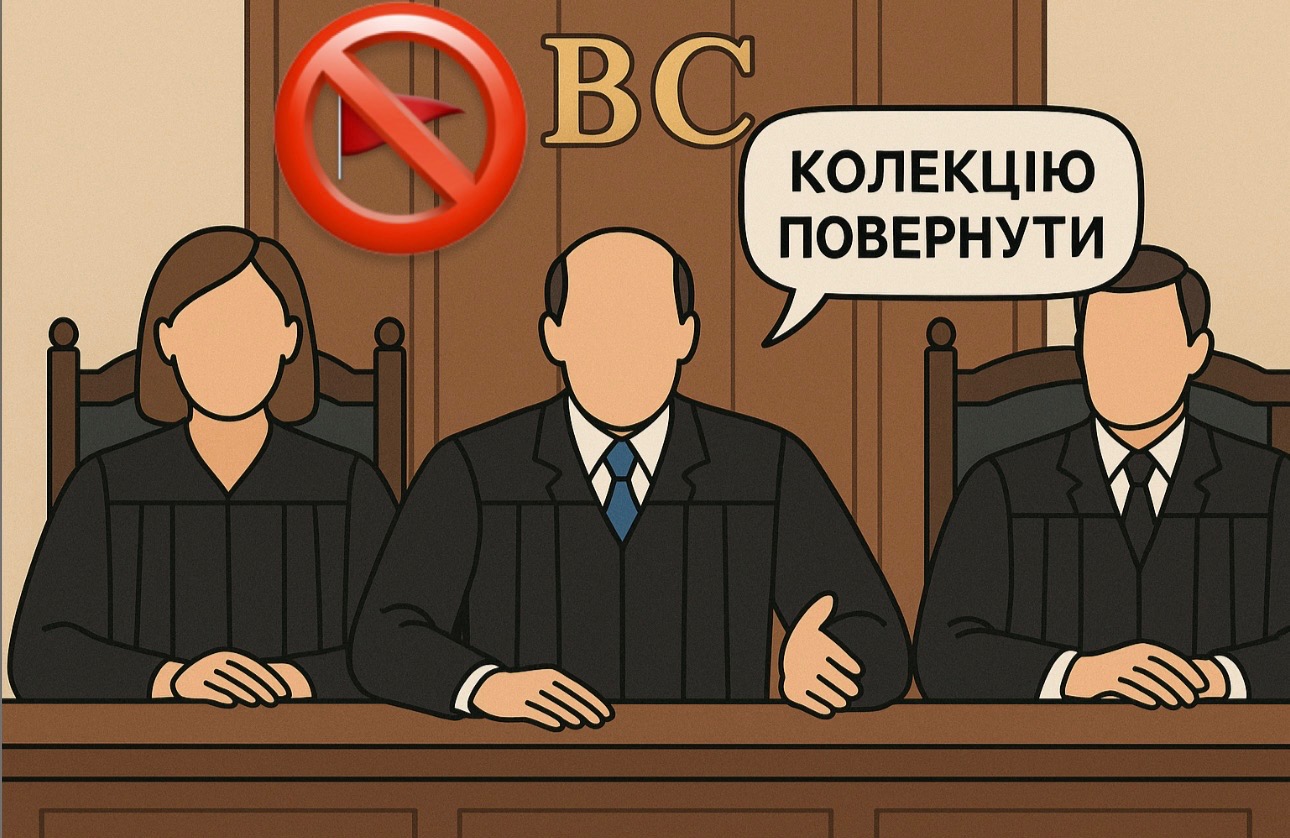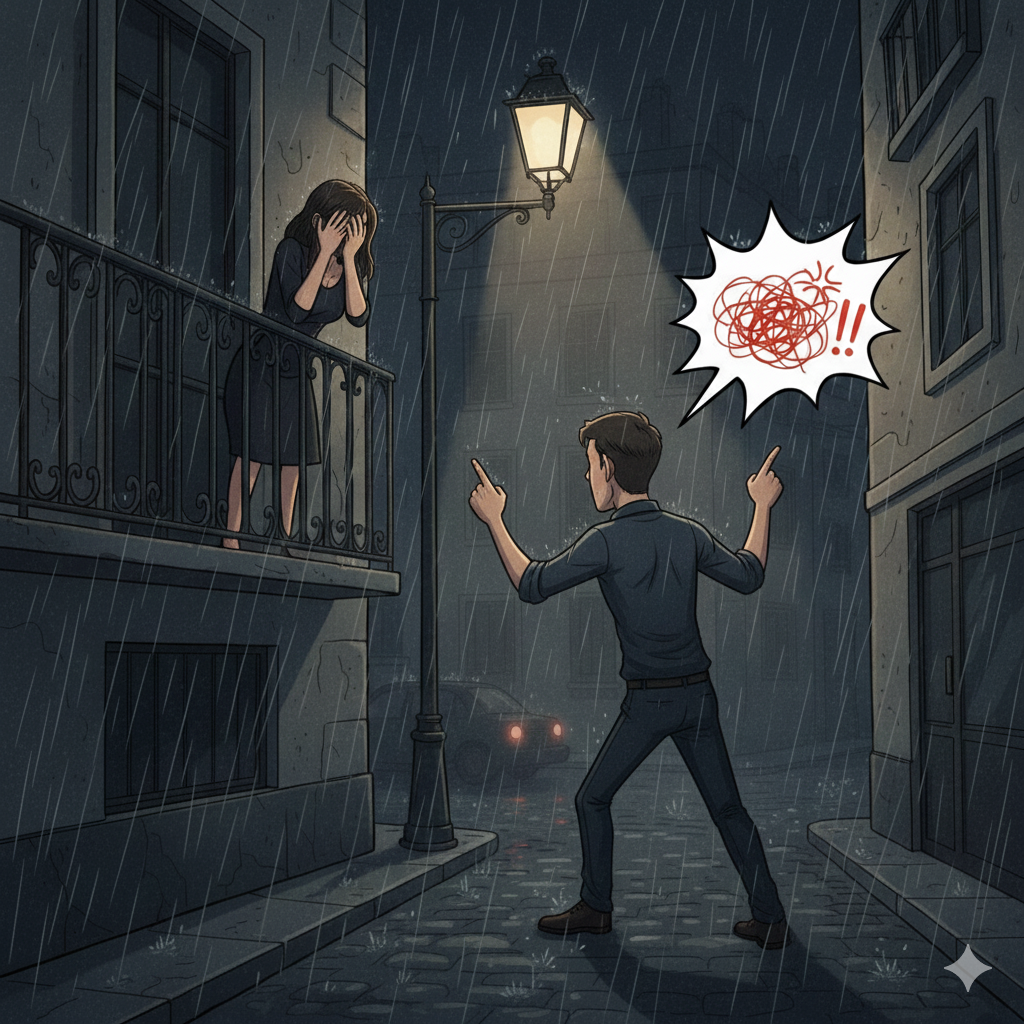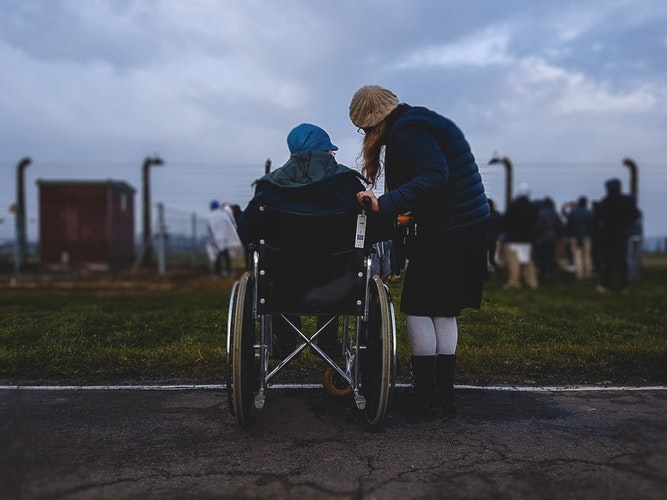0
0
3773
Фабула судового акту: Заявником у даній справі є громадянка Туреччини, якій було відмовлено у прийнятті на навчання до Турецької музичної академії при університеті Стамбулу на підставі її сліпоти.
Заявниця взяла участь у практичному відборі для вступу на навчання (продемонструвавши гру на традиційному турецькому музичному інструменті), за результатами якого потрапила у список осіб, які успішно склали вступні випробування та можуть бути рекомендовані до зарахування. Додатково правила вступу до Академії також передбачають необхідність надання медичної довідки про стан здоров’я студента. Медична установа, до якої звернулась заявниця для отримання такої довідки, надала висновок про можливість її навчання в секціях Академії, де наявність зору не є необхідною. У відповідь дирекція Академії надіслала до даної медичної установи листа з вимогою відкликати висновок, оскільки в Академії відсутні секції, де відсутність зору може допускатися. Сама ж Академія відмовила заявниці у її зарахуванні на навчання пославшись на відсутність медичної довідки.
Батьки заявниці в її інтересах та від її імені розпочали кілька судових процесів в адміністративних судах різних інстанцій з метою скасування рішення щодо відмови у зарахуванні, однак національні суди відмовили у задоволенні вимог позивачів. Після цього заявниця звернулася до ЄСПЛ з заявою щодо порушення Туреччиною статті 14 Конвеції, яка передбачає заборону дискримінації та статті 2 Протоколу № 1 до Конвенції (право на освіту).
Розглянувши матеріали справи, ЄСПЛ повторив свою позицію, висловлену у справі Glor проти Швейцарії стосовно того, що сфера застосування статті 14 Конвенції також включає в себе дискримінацію за ознакою інвалідності. Суд підкреслив, що норми національного законодавства не передбачали жодних додаткових вимог щодо стану здоров’я абітурієнтів, позаяк вимога щодо надання довідки про фізичне здоров’я передбачена лише внутрішніми правилами Академії, які водночас не містять заборони для навчання сліпих осіб. Тому Суд не може ігнорувати наслідки даної вимоги для осіб, які мають інвалідність, особливо враховуючи способи інтерпретації цієї вимоги Академією.
Суд у своєму рішенні повторює, що Конвенція покликана гарантувати права, які є практичними та ефективними, а не теоретичними та ілюзорними (див. рішення у справах Del Río Prada проти Іспанії та Dvorski проти Хорватії). Суд вказує на необхідність врахування актуальних тенденцій європейського права у питанні забезпечення фундаментального принципу недискримінації у здійсненні права на освіту, зокрема, виділяючи, що інклюзивне навчання є найбільш відповідним засобом для забезпечення зазначених фундаментальних принципів.
З урахуванням статті 2 Конвенції про права осіб з обмеженими можливостями Суд вважає, що статтю 14 Конвенції в контексті забезпечення рівних прав у подібних випадках слід трактувати у контексті необхідних пристосувань – певних обґрунтованих та відповідних модифікацій і покращень, які б не створювали додаткових барєрів та забезпечуавли можливість людям з певними фізичними вадами нарівні з іншими користуватися своїми правами та свободами. "
ЄСПЛ у своєму рішенні в даній справі, окрім іншого, наводить приклади форм, в яких можуть здійснюватися зазначені пристосування – архітектурна доступність шкільних будівель, підготовка викладачів, адаптація шкільних програм і розкладів та інше. Однак Суд підкреслює, що обов’язок щодо визначення необхідних заходів покладається на місцеві органи влади, які мають можливість безпосередньо стикатися з даними групами та аналізувати ситуацію безпосередньо на місцях.
Ухвалюючи рішення у справі, Суд прийшов до висновку, що відмова зарахувати заявницю на навчання в Академію базувалася виключно на її сліпоті, а національні органи влади на жодному з етапів не намагалися визначити потреби заявниці та розглянути можливість її навчання у випадку створення відповідних умов. ЄСПЛ зазначив, що дискримінація на підставі інвалідності також включає відмову від створення відповідних сприятливих умов (пункт 67 рішення).
З огляду на зазначене, ЄСПЛ визнав факт порушення у даному випадку статті 14 Конвеції та статті 2 Протоколу № 1 до Конвенції.
Аналізуйте судові акти:
Glor проти Швейцарії, заява № 13444/04;
Костянтин Маркін проти Росії, заява № 30078/06;
Fabris проти Франції, заява № 16574/08;
Del Río Prada проти Іспанії, заява № 42750/09;
Dvorski проти Хорватії, заява № 25703/11.

SECOND SECTION
CASE OF ÇAM v. TURKEY
(Application no. 51500/08)
JUDGMENT
(Extracts)
STRASBOURG
23 February 2016
FINAL
23/05/2016
This judgment is final in the circumstances set out in Article 44 § 2 of the Convention. It may be subject to editorial revision.
In the case of Çam v. Turkey,
The European Court of Human Rights (Second Section), sitting as a Chamber composed of:
Julia Laffranque, President,
Işıl Karakaş,
Paul Lemmens,
Valeriu Griţco,
Ksenija Turković,
Jon Fridrik Kjølbro,
Georges Ravarani, judges,
and Abel Campos, Deputy Section Registrar,
Having deliberated in private on 2 February 2016,
Delivers the following judgment, which was adopted on that date:
PROCEDURE
1. The case originated in an application (no. 51500/08) against the Republic of Turkey lodged with the Court under Article 34 of the Convention for the Protection of Human Rights and Fundamental Freedoms (“the Convention”) by a Turkish national, Ms Ceyda Evrim Çam (“the applicant”), on 22 October 2008.
2. The applicant was represented by Mr M. Boduroğlu, a lawyer practising in Istanbul. The Turkish Government (“the Government”) were represented by their Agent.
3. The applicant alleged that her right to education (Article 2 of Protocol No. 1 to the Convention) had been infringed and that she had suffered discriminatory treatment on account of her blindness (Article 14 of the Convention).
4. On 11 June 2014 those complaints were communicated to the Government and the remainder of the application was declared inadmissible pursuant to Rule 54 § 3 of the Rules of Court.
THE FACTS
I. THE CIRCUMSTANCES OF THE CASE
5. The applicant was born in 1989 and lives in Istanbul.
6. On 15 June 2004 she applied to take part in the entrance competition for the Turkish National Music Academy attached to İstanbul Technical University (“the Music Academy”) for the 2004-2005 academic year.
7. On 21 and 31 August 2004 she took the practical selection tests performing on the bağlama[1].
8. On 7 September 2004 the music section of the Academy administration published a list of successful candidates in the entrance examination, which included the applicant.
9. The applicant immediately applied to a medical board at Büyükçekmece Public Hospital for a medical report certifying her fitness to study at the Music Academy.
10. On 9 September 2004 that medical board drew up a report stating that the applicant had been diagnosed with hypermetropia with nystagmus and severe bilateral amblyopia. The Board concluded that the applicant should be referred to a higher medical authority.
11. On 16 September 2004 a medical board at the Bakɪrköy Research and Training Hospital (“Bakɪrköy Hospital”) prepared a medical report finding that the applicant could receive education and instruction in the sections of the Music Academy where eyesight was unecessary.
12. On the same day the Director of the Music Academy sent a letter to the applicant stating the following:
“As we have explained on several occasions to your mother, your father and yourself, since you have failed to provide a report from a fully equipped public hospital (tam teşekküllü devlet hastanesi[2]) confirming that you can study at the Music Academy ... we have been unable to enrol you ... We look forward to receiving your report from a public hospital mentioning your admission to the Music Academy as a student as soon as possible ...”
13. On 20 September 2004 the applicant’s father wrote to the Director of the Music Academy to inform him that the medical report had been forwarded to the Music Academy that same day, as requested.
14. Also on the same day, the Director of the Music Academy wrote to the Chief Medical Officer of Bakɪrköy Hospital. Referring to the report issued by that hospital’s Medical Board on 16 September 2004, he informed the Chief Medical Officer that none of the seven sections of the Music Academy could be deemed not to require eyesight. The letter stated that in order to be able to be educated in any section of the Academy, a student had to submit a medical report stating that he or she was fit for the task. The Director of the Music Academy asked the Chief Medical Officer to prepare a fresh medical report taking account of the fact that no section of the Music Academy could be considered as not necessitating eyesight, and accordingly to specify whether or not the applicant was capable of being educated in the Music Academy.
15. On an unspecified date the Music Academy rejected the applicant’s request for enrolment.
16. On 24 September 2004 the applicant’s parents, acting in her name and on her behalf, lodged with Istanbul Administrative Court (“the Administrative Court”) an action against the administration of Istanbul Technical University to set aside the Music Academy’s decision not to enrol their daughter. That action was accompanied by a request for a stay of execution of the impugned decision. In his p ings, counsel for the applicant argued that his client had passed the entrance examination to the Music Academy on 21 August 2004, appearing before a panel of eight teachers, and that on 31 August 2004 she had passed the final entrance competition with full marks, appearing before a panel of twenty teachers. Quoting the criteria for admission to the Music Academy, that is to say being under the age of fifteen, holding a certificate of primary education, having the requisite physical abilities for playing the chosen instrument in respect of which enrolment has been requested, not having a physical disability such as to prevent her from receiving an education in the chosen section, and passing the talent and technical standard competition. Counsel for the applicant submitted that she had satisfied all those criteria. Her enrolment in the Music Academy had been refused on the sole ground that she was blind, which was contrary to law and the equality principle. In support of her application, counsel for the applicant relied on Article 42 of the Constitution, Articles 4, 7, 8 and 27 of Basic Law No. 1739 on national education (“Act No. 1739”) and Article 9 of Legislative Decree No. 573 on specialised education. He also cited the names of former blind students who had graduated from the same Music Academy.
17. In a statement of defence of 12 October 2004 the administration of Istanbul Technical University submitted that when filing her application for enrolment the applicant’s father had provided no document referring to her blindness. It contended that he had concealed that fact, had behaved as if his child were disability-free and had therefore attempted to deceive the enrolment office. It stated that Article 4 of the principles governing admissions and enrolment in the Music Academy set out the “no disability” criterion. Furthermore, the applicant had failed to provide a medical report certifying that she could study at the Music Academy, which requirement applied to all applicants for admission. The statement therefore affirmed that the refusal to enrol the applicant had not been due to her blindness but stemmed from her failure to submit all the requisite documents for her enrolment, within the stipulated time-limit. It added that even though the medical report submitted by the applicant had stated that she could study in the sections of the Academy where eyesight was unnecessary, there were in fact no such sections. Finally, it pointed out that in the absence of appropriate facilities and teaching staff with the requisite expertise, the Music Academy was not in a position to provide education for blind students, or indeed for persons with any kind of disability. In that connection it explained that in 1976, when it had opened, the Music Academy had hoped to introduce facilities for teaching blind students, but the lack of teachers with a command of braille had forced it to abandon those efforts.
18. On 14 October 2004 the Administrative Court dismissed the request for a stay of execution of the decision on the grounds that the conditions set out in section 27 § 2 of Act No. 2577 on Administrative Procedure (“Act No. 2577”) as amended by Act No. 4001 had not been met.
19. On 26 October 2004, acting in her name and on her behalf, the applicant’s parents appealed against that decision to the Istanbul Regional Administrative Court. They argued that pursuant to section 27 § 2 of Act No. 2577, there had been two preconditions for obtaining a stay of execution: the existence of damage which was irreparable or difficult to repair, and the apparent unlawfulness of the administrative Act in question. The parents stated that under the circumstances of the present case it was obvious that the refusal to enrol their daughter in the Music Academy would cause her damage which would be difficult to repair. They also submitted that such refusal was unlawful. Their memorial pointed out that the applicant held a primary school certificate and, apart from her blindness, had all the requisite physical capacities for playing the bağlama. Furthermore, she had passed the entrance examination for the Music Academy, and a medical report had established that she had no disability such as to prevent her from receiving education in the music department. They submitted that the merits of that medical report could not be contested, that other students had provided medical reports from institutions similar to that which had drawn up the applicant’s report, and that the Music Academy had accepted those reports. In their view, the fact that the report had not specifically mentioned that the applicant could study at the Academy could not invalidate it. Moreover, they argued that the respondent administration’s argument that the medical report had not been submitted in time was fallacious, as that report had been submitted to the Music Academy on Monday 20 September 2004, that is to say on the first working day after receipt of the letter from the Academy requesting the report. The parents further affirmed that the applicant had met all the conditions for enrolment and submitted the requested documents within the stipulated time-limits. The only reason for the refusal of enrolment had been her blindness. In reply to the respondent administration’s plea that the Music Academy had no sections where eyesight was not required, the applicant’s parents provided the names of four blind graduates of the Music Academy. Those former students had asserted that blindness was no obstacle to playing a musical instrument, that there were many blind musicians and that the Music Academy’s argument that none of the teachers knew braille was invalid in the light of advanced technology and computer systems capable of converting braille. Finally, the applicant’s parents submitted that the impugned measure was contrary to the constitutional principle of equality and all the relevant international legal instruments.
20. On 28 October 2004 the Istanbul Regional Court Administrative dismissed that appeal on the grounds that the conditions for a stay of execution set out in section 27 § 2 of Act No. 2577 had not been fulfilled since the execution of the impugned decision was not such as to cause damage which was irreparable or difficult to repair and was not unlawful.
21. On 29 November 2004 the Chief Medical Officer of Bakɪrköy Hospital wrote to the administration of the Music Academy to inform it that the medical report du 16 September 2004 had been revised. The original sentence “can receive education and instruction in the sections of the Music Academy where eyesight is unnecessary” had been replaced by: “cannot receive education or instruction”.
22. On 11 March 2005, acting in the applicant’s name and on her behalf, her parents submitted a complaint to the Bakɪrköy State Prosecutor against the Bakɪrköy Research and Training Hospital, its Chief Medical Officer and the other doctors who had amended the medical report of 16 September 2004, accusing them of abuse of office. They argued that the doctors had amended the medical report arbitrarily, without examining their daughter. They affirmed that the purpose of the amendments had been to ensure that the proceedings against the administration of Istanbul University concluded in the latter’s favour.
23. On the same day they applied to the Istanbul Medical Association for an inquiry into the events in question.
24. On 23 May 2005 the Health Department attached to the Istanbul Governor’s Office adopted a decision refusing to authorise the prosecution of the Chief Medical Officer in question. That decision mentioned that the findings of the report had been amended at the request of the administration of the Music Academy and that there had been no wrongdoing or abuse of office.
25. On 4 July 2005 the applicant’s parents, acting in her name and on her behalf, appealed to the Istanbul Regional Administrative Court to set aside that decision and authorise proceedings against the Chief Medical Officer in question. That appeal was unsuccessful.
26. On 18 July 2005 they lodged an appeal with the Istanbul Court Administrative requesting the setting aside of the decision not to enrol the applicant. They relied on section 15 of Act No. 5378 of 1 July 2005 on persons with disabilities (“Act No. 5378”), which had, in their view, put an end to all forms of discrimination in the educational sphere.
27. On 14 October 2005 the Administrative Court dismissed the applicant’s appeal. The relevant sections of the court’s reasoning read as follows:
“...
The principles governing entrance competitions and enrolments at the Turkish National Music Academy attached to Istanbul University were adopted by the University Senate ... at the request of the section assembly, after having been debated in the Music Academy assembly and deemed lawful by the University’s Educational Board. ... Those principles include the condition that applicants who have passed the competition for enrolment in the Music Academy should not suffer from any physical disability impeding education in the section [to which they have been admitted]. Furthermore, that condition is mentioned on the form distributed to applicants listing the documents required for final enrolment. The submission of a report drawn up by a fully equipped hospital and stating ‘is capable of studying at the Music Academy’ is mandatory.
It transpired from the assessment of the application that [the applicant] passed the entrance examination and secured the right to be enrolled. However, whereas the report prepared by Büyükçekmece Public Hospital had concluded that a report should be requested from a higher medical board, she requested a report from an equivalent medical board, namely Bakɪrköy Research and Training Hospital. It transpires from the defence of the respondent administration that in the 1970s, when the Music Academy was set up, it had enrolled a number of blind students on a trial basis, but, in the absence of teaching staff conversant with the braille alphabet and having regard to the various difficulties encountered, that experiment was discontinued. No further blind students were admitted. It has been established that the administration wrote to the Chief Medical Officer of Bakɪrköy Hospital requesting information on the interpretation of the medical report which it had issued and that the conclusions of that report had subsequently been amended. The respondent administration’s decision to refuse to enrol the applicant was not unlawful as she had been unable to provide a report drawn up by a fully equipped public hospital and stating that she was capable of studying at the Music Academy. The applicant’s allegations to the contrary are ill-founded ...”
28. The Administrative Court adopted that decision on a majority vote, contrary to the recommendation of the President of the court, who adopted a dissenting opinion stating, with reference to Article 42 of the Constitution and Act No. 1739, that no one could be deprived of his or her right to education and instruction. In his view, it was beyond doubt that it was incumbent on government departments to put in place an environment conducive to education and instruction and meeting the needs of blind persons. Referring to the defence put forward by the respondent administration, which had attempted to incorporate blind students in 1976, he noted that it had been possible at the time to provide blind persons with musical education. He emphasised that there were many famous blind musicians. To deprive individuals of their right to education was incompatible with a social and democratic State governed by the rule of law. He consequently held that the impugned administrative measure had been unlawful.
29. On 9 November 2005 the Governing Board of the Istanbul Medical Association wrote a letter to the applicant’s father in reply to his request of 11 March 2005 (see paragraph 23 above). The relevant parts of the letter read as follows:
“1. The two reports covered by the inquiry are similar in content.
2. However, the hospital administration’s failure to defend the initial report and its decision to make the requested amendments, on the instructions of the administration of the Music Academy ... cannot be considered as an appropriate attitude.
3. The letter of 22.10.2004 (no. 5821) sent by the administration of the Music Academy ... to the Chief Medical Officer of the hospital ... states that ‘inasmuch, moreover, as the teaching administered in those sections is intended for sighted students, we have no suitable educational environment for blind students (in terms of resources, equipment, technical facilities or teachers). For those reasons it is out of the question for sighted and blind students to follow common courses’.
... Having regard to the relevant international agreements and legislative provisions, the course of action expected of the administration was not to force through amendments to a report drawn up by a hospital, thus impeding a blind citizen’s right to education ... In conclusion, the Chief Medical Officer amended the form of the report, [but] its content remained the same, such that he cannot be accused of negligence. The available administrative and judicial remedies should be used to aasert the right in question ...”
30. On 18 April 2006 the applicant’s parents, acting in her name and on her behalf, lodged an appeal on points of law with the Council of State against the 14 October 2005 decision of the Administrative Court (see paragraph 27 above). They submitted that that decision was contrary to the Constitution, to Act No. 1739, to Act No. 5378 and to several international instruments and declarations. They submitted that the respondent administration’s defence plea that eyesight was required in all the sections of the Music Academy was fallacious, citing the names of blind former music students who held diplomas from the Academy. They requested the invalidation of the first-instance decision in accordance with the arguments set out in the opinion of the President of the Administrative Court.
31. On 4 January 2007 the administration of Istanbul Technical University filed its defence. It submitted that the applicant’s medical report had mentioned that she could study in the sections of the Music Academy which did not require eyesight, but that in fact the Academy had no such sections. Lastly, it affirmed that the applicant had not met all the requisite conditions for enrolment.
32. By judgment of 19 February 2008, served on counsel for the applicant on 28 April 2008, the Council of State dismissed the appeal on points of law and upheld the impugned decision, having found that the latter had fallen within the jurisdiction of the administrative court, had not been unlawful and had complied with the procedural rules. Moreover, it transpired from the judgment of the Council of State that the reporting judge had come down in favour of admitting the appeal on points of law. In his opinion on the appeal on points of law, the State Prosecutor with the Council of State, referring to Article 42 of the Constitution and sections 4, 7 and 8 of Act No. 1739, also stated that educational establishments were required to take into account persons who required specialist teaching and to adopt the necessary measures to guarantee their education. In the circumstances of the present case, he considered that the decision not to enrol the applicant – who had passed the entrance examination for the Music Academy and met all the legal conditions – flouted the relevant constitutional and legislative provisions and should therefore be set aside.
33. According to information transmitted to the Court by the applicant, after the rejection of her application to the Music Academy, she continued her education in an ordinary school before joining the Music Department of the Arts Faculty of Marmara University.
...
THE LAW
I. ALLEGED VIOLATION OF ARTICLE 14 OF THE CONVENTION IN CONJUNCTION WITH ARTICLE 2 OF PROTOCOL No. 1
39. The applicant complained of an infringement of her right to education. She contested the argument that eyesight was required for enrolment in the Music Academy, submitting that such a requirement was incompatible with the right to education. She further argued that the State had not honoured its positive obligation to provide persons with disabilities with the same opportunities as everyone else. She relied on Article 2 of Protocol No. 1, which provides:
“No person shall be denied the right to education. In the exercise of any functions which it assumes in relation to education and to teaching, the State shall respect the right of parents to ensure such education and teaching in conformity with their own religious and philosophical convictions.”
40. The applicant also alleged that she had suffered discriminatory treatment on account of her blindness, in breach of Article 14 of the Convention, which provides:
“The enjoyment of the rights and freedoms set forth in this Convention shall be secured without discrimination on any ground such as sex, race, colour, language, religion, political or other opinion, national or social origin, association with a national minority, property, birth or other status.”
41. The Government contested those allegations.
A. Applicability of Article 2 of Protocol No. 1
42. In the instant case the Government submitted that the college in which the applicant had wished to enrol held the status of an institution of higher education attached to the National Music Academy and provided four-year courses of higher education. Furthermore, the Music Academy taught such subjects as mathematics, physics and history, as well as providing optional courses; the Government therefore accepted that Article 2 of Protocol No. 1 might apply to the present case.
43. The Court sees no reason to depart from this finding. Although Article 2 of Protocol No. 1 cannot be interpreted as requiring the Contracting States to set up or subsidise special education establishments, any State which does have such establishments has an obligation to provide effective access to them. In other words, access to educational institutions which exist at a given time is an integral part of the right set out in the first sentence of Article 2 of Protocol No. 1 (see Catan and Others v. the Republic of Moldova and Russia [GC], nos. 43370/04, 8252/05 and 18454/06, § 137, ECHR 2012 (extracts), with the case-law references therein). Moreover, that provision also applies to the primary, secondary and higher levels of education (see Leyla Şahin v. Turkey [GC], no. 44774/98, §§ 134-136, ECHR 2005‑XI). The fact that the college at issue primarily provides education in the arts sphere is no ground for excluding the assessment of the conditions for access to it from the scope of Article 2 of Protocol No. 1. Consequently, the applicant’s complaint does indeed fall within the ambit of that provision.
...
C. Merits
1. The parties’ submissions
a. The applicant’s submissions
45. The applicant submitted that by refusing to enrol her in the Music Academy on the sole ground of her blindness the administration had treated her in an unfair and discriminatory manner. The Government’s affirmations that there had been no suitable infrastructures in 2004-2005 to provide education for blind persons and that her enrolment would have been finalised if she had supplied all the requested documents (see paragraphs 48-51 below) were contradictory.
46. The applicant also stated that she had provided all the requisite documents within the stipulated time-limits. The medical report presented to the Music Academy had stipulated that she could receive education in the sections of the Music Academy that did not require eyesight. She submitted that other students had been enrolled even though their medical reports had merely stated “can attend college”, “can be enrolled at university” or “can study at the Music Academy”, such that the refusal to enrol her had not been based on sound reasons but solely on the fact of her blindness, which proved that there had been discrimination.
47. She affirmed that the essence of her right to education had been flouted by the Government. She further submitted, as regards the Music Academy’s past efforts to provide education for blind persons, that by omitting to provide educational opportunities for blind persons between 1976 and 2004 the Government had also failed to provide equal opportunities to all members of society, thus failing in their positive obligations in that regard.
b. The Government’s submissions
48. Having cited the case-law of the Court (Case “relating to certain aspects of the laws on the use of languages in education in Belgium” (merits), 23 July 1968, §§ 3-5, Series A no. 6; Golder v. the United Kingdom, 21 February 1975, 38, Series A no. 18; Kjeldsen, Busk Madsen and Pedersen v. Denmark, 7 December 1976, §§ 21 and 52, Series A no. 23;Campbell and Cosans v. the United Kingdom, 25 February 1982, § 41, Series A no. 48; Yanaşɪk v. Turkey, no. 14524/89, Commission decision of 6 January 1993, Decisions and Reports (DR) 74, p. 14; Costello-Roberts v. the United Kingdom, 25 March 1993, § 27, Series A no. 247‑C; Fayed v. the United Kingdom, 21 September 1994, § 65, Series A no. 294‑B; and, mutatis mutandis, Podkolzina v. Latvia, no. 46726/99, § 36, ECHR 2002‑II), the Government explained that the rules on conditions for admission and registration for the entrance examination to the instrumental music department required “the specific physical capacities for playing the chosen instrument for which enrolment has been requested” and “no physical disabilities such as to impede education in the [chosen] section”. Drawing on those provisions, the administration of the Music Academy had asked the applicant to provide a medical report in order to enrol her. However, the applicant had not provided a report stating that she was “qualified to study at the Music Academy”.
49. According to the Government the rules in question had been legitimate and foreseeable, as the Music Academy admitted gifted students and persons with specific talents. Furthermore, the aforementioned criteria had been published and were accessible to the public. Nor did the regulations comprise any provisions explicitly excluding blind persons constituting manifest discrimination against such persons.
50. The Government considered that the rejection by the administration of the Academy of the report provided by the applicant stating that she was capable of taking courses in a section which did not require eyesight should be assessed in such a way as to determine whether, and to what extent, it infringed the essence of the applicant’s right to education and diminished the effectiveness of such right.
51. The Government further submitted that in 2004 the Music Academy had had neither the infrastructure (in terms of resources, equipment and teaching staff) for students with disabilities nor any regulations on matters relating to disability. As regards the allegation that the applicant had suffered discriminatory treatment, the Government pointed out that discrimination meant treating differently, without an objective and reasonable justification, persons in similar situations. “No objective and reasonable justification” meant that the distinction in issue did not pursue a legitimate aim or that there was not a reasonable relationship of proportionality between the means employed and the aim sought to be realised (see Sejdić and Finci v. Bosnia-Herzegovina [GC], nos. 27996/06 and 34836/06, § 42, ECHR 2009, and Ali v. the United Kingdom, no. 40385/06, § 53, 11 January 2011). They also cited the case-law of the Court regarding the margin of appreciation enjoyed by States (see Andrejeva v. Latvia [GC], no. 55707/00, § 82, ECHR 2009). The Government concluded by stating that they were well informed of the Court’s case-law relating to the applicant’s complaints and that they respected the Court’s decision to intervene.
2. The Court’s assessment
a. General principles
52. As regards the right to education, the Court reiterates that it has already had occasion to point out that in a democratic society that right is indispensable to the furtherance of human rights and plays a fundamental role (see Velyo Velev v. Bulgaria, no. 16032/07, § 33, ECHR 2014 [extracts]). In that connection, while repeating that education is one of the most important public services in a modern State, the Court acknowledges that it is an activity that is complex to organise and expensive to run, whereas the resources that the authorities can devote to it are necessarily finite. It is also true that in deciding how to regulate access to education, a State must strike a balance between, on the one hand, the educational needs of those under its jurisdiction and, on the other, its limited capacity to accommodate them. However, the Court cannot overlook the fact that, unlike some other public services, education is a right that enjoys direct protection under the Convention (ibid.).
53. The Court reiterates that in interpreting and applying Article 2 of Protocol No. 1, account must also be taken of any relevant rules and principles of international law applicable in relations between the Contracting Parties and that the Convention should so far as possible be interpreted in harmony with other rules of international law of which it forms part (see Catan and Others, cited above, § 136). The provisions on the right to education set out in such instruments as the European Social Charter or the United Nations Convention on the Rights of Persons with Disabilities should therefore be taken into consideration. Lastly, the Court emphasises that the object and purpose of the Convention, as an instrument for the protection of individual human beings, requires that its provisions be interpreted and applied so as to make its safeguards practical and effective (ibid.).
54. As regards the prohibition of discrimination, the Court reiterates that discrimination means treating differently, without an objective and reasonable justification, persons in similar situations, and that “no objective and reasonable justification” means that the distinction in issue does not pursue a “legitimate aim” or that there is not a “reasonable relationship of proportionality between the means employed and the aim sought to be realised” (see Sejdić and Finci, cited above, § 42). However, Article 14 of the Convention does not prohibit a member State from treating groups differently in order to correct “factual inequalities” between them; indeed in certain circumstances a failure to attempt to correct inequality through different treatment may in itself give rise to a breach of the Article (see, among other authorities, D.H. and Others v. the Czech Republic [GC], no.57325/00, § 175, ECHR 2007‑IV). The Contracting State enjoys a margin of appreciation in assessing whether and to what extent differences in otherwise similar situations justify a different treatment (see Vallianatos and Others v. Greece [GC], nos. 29381/09 and 32684/09, § 76, ECHR 2013 ([extracts]).
b. Application of those principles to the present case
55. The Court considers that the possibly discriminatory treatment of the applicant is central to her complaint. It therefore takes the view that the case should be assessed first of all under Article 14 of the Convention in conjunction with Article 2 of Protocol No. 1 (see, for a similar approach, Oršuš and Others v. Croatia [GC], no. 15766/03, §§ 143-145, ECHR 2010). The Court reiterates that it has already held that the scope of Article 14 includes discrimination based on disability (see Glor v. Switzerland, no. 13444/04, § 80, ECHR 2009).
56. In the present case, the applicant submitted that the rejection of her application for enrolment in the Music Academy had been discriminatory because it had been based on her blindness. In that regard, the Court observes that various legislative provisions in force at the material time confirmed the right to education of children with disabilities, without discrimination ...
57. That being the case, the Court also notes that the conditions for enrolment in the Music Academy included the requirement to provide a medical certificate of physical fitness for receiving education in that establishment. Accordingly, the initial grounds for withholding access to education in the Music Academy from the applicant lay not in the law but in the Academy’s regulations. In that connection the Court further notes from the defence case submitted to the domestic courts by the administration of Istanbul Technical University (see paragraph 17 above) that the Music Academy was unable to admit persons with any kind of disability.
58. In the instant case, therefore, the Court must ascertain whether, the State having decided to provide specialist musical education, access to such education could be withheld from a group of persons in particular because the discrimination includes cases where a person or group is treated, without proper justification, less favourably than another, even though the more favourable treatment is not called for by the Convention (see Glor, cited above, § 73).
59. Clearly, as the Government submitted (see paragraph 49 above), the regulations on enrolment in the Music Academy contained no provisions geared to excluding blind persons. It is also true that all applicants for enrolment in the Music Academy are required to provide a medical certificate concerning their physical fitness. Nevertheless, the Court cannot overlook the effects of such a requirement on persons such as the applicant who have a physical disability, having regard, in particular, to the manner in which the Academy in question interprets that requirement.
60. The Court observes that the applicant did indeed provide the administration of the Academy with a medical report on her physical fitness, albeit with one reservation concerning her blindness (see paragraph 11 above). However, the Music Academy rejected that report, going so far as to demand amendments to it by the medical officer who had drawn it up (see paragraphs 14 and 29 above). Consequently, even though the Academy attempted to justify its refusal to enrol the applicant with her failure to comply with the requisite administrative formalities, and in particular the absence of a medical report prepared by a fully equipped hospital, the Court considers, having regard to all the foregoing considerations and to the letter from the Director of the Music Academy to the Chief Medical Officer of Bakɪrköy Hospital (see paragraph 29 above), that there can be no doubt that the applicant’s blindness was the sole reason for that refusal.
61. Moreover, in view of the ease with which the Music Academy secured the amendment of the medical report originally prepared by the Chief Medical Officer of Bakɪrköy Hospital (see paragraph 21 above), the Court holds that the applicant would in any event have been unable to meet the physical fitness requirement, since the definition of the latter was apparently left to the Academy’s discretion. In that connection the Court also refers to the criticism voiced on that matter by the Governing Board of Istanbul Medical Association (see paragraph 29 above).
62. The Court observes that the Government justified the rules governing enrolment in the Music Academy first of all with the fact that the Academy was designed to admit only students with special talents (see paragraph 49 above). Although the Court considers that the domestic authorities undeniably had a margin of appreciation in defining the qualities required of applicants to the Music Academy, that argument cannot stand up in the particular circumstances of the present case. If the Music Academy aims to provide education for specially gifted students, since the applicant had passed the entrance examination prior to any application for enrolment (see paragraphs 16 and 32 above), she demonstrated that she possessed all the requisite qualities in that regard.
63. The Government then argued that at the material time the Music Academy had lacked appropriate infrastructures to admit students with disabilities.
64. The Court reiterates that the Convention is intended to guarantee rights that are practical and effective and not theoretical and illusory (see, among other authorities, Del Río Prada v. Spain [GC], no. 42750/09, § 88, ECHR 2013, and Dvorski v. Croatia [GC], no. 25703/11, § 82, 20 October 2015; see also paragraph 54 above). In the context of the present case, the Court also reiterates that it must have regard to the changing conditions of international and European law and respond, for example, to any emerging consensus as to the standards to be achieved (see, mutatis mutandis, Konstantin Markin v. Russia [GC], no. 30078/06, § 126, ECHR 2012 [extracts], and Fabris v. France [GC], no. 16574/08, § 56, ECHR 2013 [extracts]). In that connection, it notes the importance of the fundamental principles of universality and non-discrimination in the exercise of the right to education, which are enshrined in many international texts (... see Catan and Others, cited above, §§ 77-81). It further emphasises that those international instruments have recognised inclusive education as the most appropriate means of guaranteeing the aforementioned fundamental principles.
65. The Court considers that Article 14 of the Convention must be read in the light of the requirements of those texts regarding reasonable accommodation – understood as “necessary and appropriate modification and adjustments not imposing a disproportionate or undue burden, where needed in a particular case” – which persons with disabilities are entitled to expect in order to ensure “the enjoyment or exercise on an equal basis with others of all human rights and fundamental freedoms” (Article 2 of the Convention on the Rights of Persons with Disabilities ...). Such reasonable accommodation helps to correct factual inequalities which are unjustified and therefore amount to discrimination (see paragraph 54 above).
66. The Court is not unaware that every child has his or her specific educational needs, and this applies particularly to children with disabilities. In the educational sphere, the Court acknowledges that reasonable accommodation may take a variety of forms, whether physical or non-physical, educational or organisational, in terms of the architectural accessibility of school buildings, teacher training, curricular adaptation or appropriate facilities. That being the case, the Court emphasises that it is not its task to define the resources to be implemented in order to meet the educational needs of children with disabilities. The national authorities, by reason of their direct and continuous contact with the vital forces of their countries, are in principle better placed than an international court to evaluate local needs and conditions in this respect.
67. However, the Court takes the view that it is important for the States to be particularly careful in making their choices in this sphere, having regard to the impact of the latter on children with disabilities, whose particular vulnerability cannot be overlooked. It consequently considers that discrimination on grounds of disability also covers refusal to make reasonable accommodation.
68. In the instant case, the Court notes from the case-file that the relevant domestic authorities at no stage attempted to identify the applicant’s needs or to explain how her blindness could have impeded her access to a musical education. Nor did they ever consider physical adaptations in order to meet any special educational needs arising from the applicant’s blindness (cf. McIntyre v. the United Kingdom, no. 29046/95, Commission decision of 21 October 1998, not published). The Court can only note that since 1976 the Music Academy has made no attempt to adapt its teaching methods in order to make them accessible to blind children.
69. Having regard to all the foregoing considerations, the Court observes that the refusal to enrol the applicant in the Music Academy was based solely on the fact that she was blind and that the domestic authorities had at no stage considered the possibility that reasonable accommodation might have enabled her to be educated in that establishment. That being the case, the Court considers that the applicant was denied, without any objective and reasonable justification, an opportunity to study in the Music Academy, solely on account of her visual disability. It therefore finds that there has been a violation of Article 14 of the Convention taken in conjunction with Article 2 of Protocol No. 1.
...
FOR THESE REASONS, THE COURT, UNANIMOUSLY,
...
2. Holds that there has been a violation of Article 14 of the Convention taken in conjunction with Article 2 of Protocol No. 1;
Done in French, and notified in writing on 23 February 2016, pursuant to Rule 77 §§ 2 and 3 of the Rules of Court.
...
Abel CamposJulia Laffranque
Deputy RegistrarPresident
Фото: from free stock Unsplash (https://unsplash.com/photos/0nkFvdcM-X4)
Просмотров
Коментарии
Просмотров
Коментарии
Получите быстрый ответ на юридический вопрос в нашем мессенджере , который поможет Вам сориентироваться в дальнейших действиях
Вы видите своего юриста и консультируетесь с ним через экран, чтобы получить услугу, Вам не нужно идти к юристу в офис
На выполнение юридической услуги и получите самое выгодное предложение
Поиск исполнителя для решения Вашей проблемы по фильтрам, показателям и рейтингу

Просмотров:
258
Коментарии:
0

Просмотров:
804
Коментарии:
0

Просмотров:
895
Коментарии:
0

Просмотров:
611
Коментарии:
0

Просмотров:
586
Коментарии:
0

Просмотров:
1142
Коментарии:
1

Protocol.ua обладает авторскими правами на информацию, размещенную на веб - страницах данного ресурса, если не указано иное. Под информацией понимаются тексты, комментарии, статьи, фотоизображения, рисунки, ящик-шота, сканы, видео, аудио, другие материалы. При использовании материалов, размещенных на веб - страницах «Протокол» наличие гиперссылки открытого для индексации поисковыми системами на protocol.ua обязательна. Под использованием понимается копирования, адаптация, рерайтинг, модификация и тому подобное.
Полный текстПриймаємо до оплати


Copyright © 2014-2025 «Протокол». Все права защищены.
